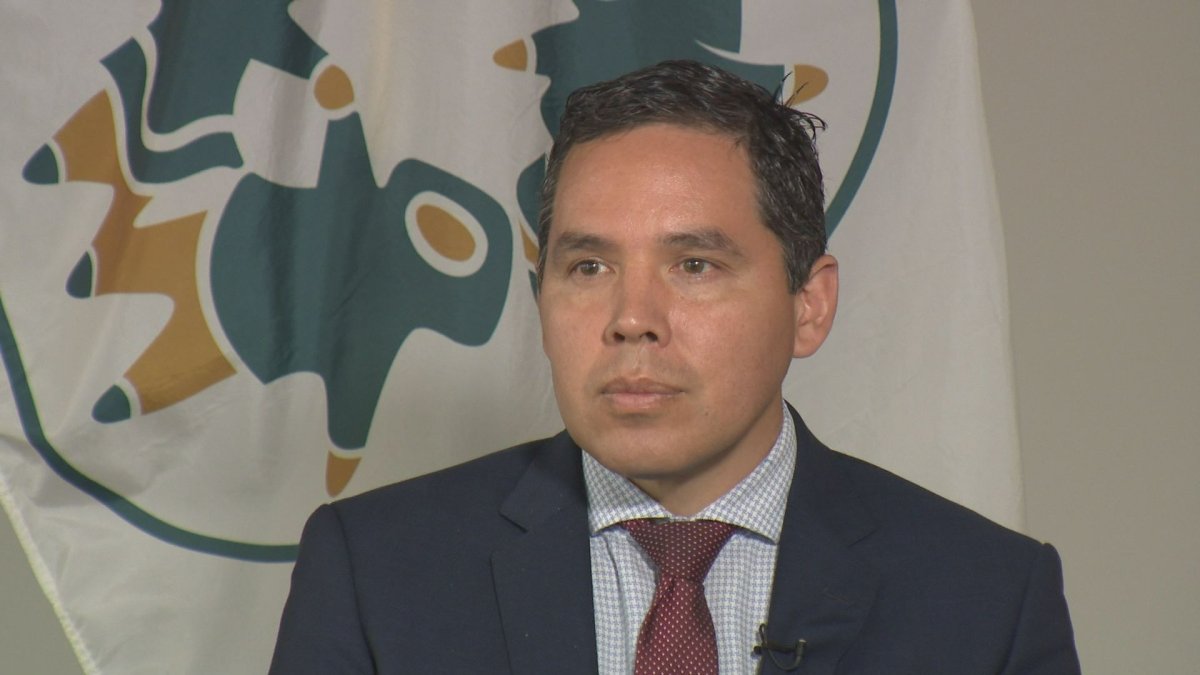Global News’ collaborative investigation into billions of dollars in federal contracts awarded to Indigenous-owned enterprises began in late 2022, when a journalist noticed that some suppliers of personal protective equipment did not disclose a connection to a First Nation, Métis or Inuit community on their websites.

Vast sums of public funds are in play.
As part of the federal government’s Procurement Strategy for Indigenous Business (PSIB), businesses majority-owned by First Nations, Metis and Inuit peoples now receive priority access to at least 5 per cent of nearly all federal contracts. In the fiscal year 2022-2023, this added up to at least $1.6 billion, according to a recent federal report.
It was unclear how some businesses met the minimum. Indigenous Services Canada (ISC), the department responsible for the program, does not publish this information.
To take a deeper look into which Indigenous communities were benefiting from PSIB, Global News asked faculty and students at First Nations University of Canada and University of King’s College, based respectively in Regina and Halifax, to join the research and reporting.
Preparing a draft list of the industry’s top players, the team analyzed Public Accounts of Canada’s records of payments and the hundreds of thousands of contract-award records available from the Treasury Board of Canada Secretariat and Public Services and Procurement Canada. The contract awards databases include countless duplicates, which the group removed.

Get daily National news
Reporters also looked for any relationships between the enterprises benefitting from the PSIB, examining registry documents for more than 70 businesses.
For verification of the analysis’s results, the group turned to data published by a Carleton University project led by a civil servant, Sean Boots, and Amanda Clarke, an associate professor at the School of Public Policy and Administration.
Meanwhile, reporters found that one of the main obstacles to researching the PSIB’s community links was that non-Indigenous people are often reluctant to ask Indigenous business owners and executives about their ancestry.
Many First Nations, Métis and Inuit people prefer to be specific about their citizenship, arguing that the term “Indigenous” is imprecise. Within Canada’s borders there are some 50 nations, from Mi’kmaq to Gitxsan, speaking upwards of 70 languages with multiple dialects, living in hundreds of culturally distinct communities.
To uncover the connections between the PSIB and Indigenous communities, the collaborative team began asking federal contractors who identify as Indigenous a standard set of questions, including requesting specific information about their heritage.
Read the results here.
The responses revealed that the PSIB primarily benefits Ottawa-area enterprises offering IT consulting. Their community links are not always obvious or easily defined.
For First Nations, Métis and Inuit leaders, the larger question is whether it should be up to the federal government to determine who is Indigenous — or qualifies for the PSIB.
It is not Canada’s right, the Inuit leader said, to decide otherwise.
With research assistance from:
First Nations University of Canada, Indigenous Journalism and Communication Arts
Researchers: Celeste Bird, Luis Filipe Mussalém, Emilie Wren and Cat Zens
Supervising faculty: Patricia W. Elliott
University of King’s College, School of Journalism, Writing and Publishing
Researchers: Gökçe On and Hannah Sangster
Supervising faculty: Pauline Dakin







Comments